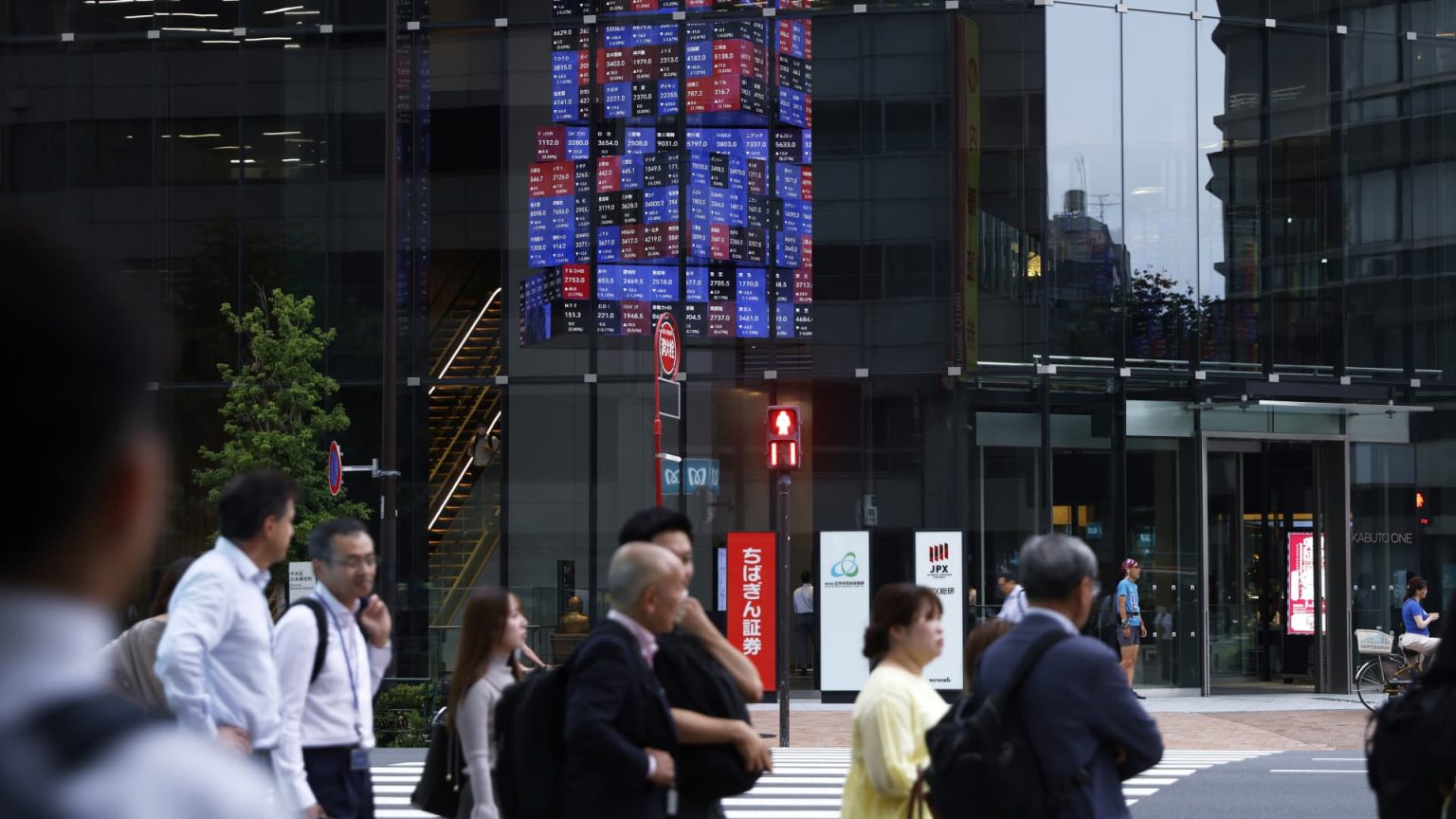Japan’s benchmark indexes experienced a significant decline, dropping as much as 5% on Friday following a sell-off on Wall Street due to recession concerns. The Nikkei led the losses in the region, extending its slide from the previous day to reach its lowest level since February. Despite initially steep losses, both the Nikkei and Topix managed to pare back some of their losses by the end of the session, with declines of 4.56% and 4.47%, respectively. Heavyweight stocks such as Softbank Group, Mitsui, Marubeni, and Tokyo Electron all saw significant drops in value, contributing to the overall negative sentiment in the Japanese market. Additionally, Japanese government bond yields fell, with the yield on the benchmark 10-year JGB dropping below 1%, hitting its lowest level since June.
South Korea’s Kospi also experienced a sharp decline of 3.19% on Friday, primarily driven by losses in banking stocks. However, K-pop stocks provided a silver lining as shares of all four listed K-pop companies rose despite the broader market sell-off. In Australia, the S&P/ASX 200 retreated from its all-time high on Thursday, falling 2.14%. Hong Kong’s Hang Seng index was down 2%, while mainland China’s CSI 300 saw the smallest loss in Asia at 0.66%. Meanwhile, South Korea’s inflation numbers for July came in slightly higher than expected, with the consumer price index climbing 2.6% year on year, surpassing the 2.5% forecasted by economists.
The negative sentiment in Asian markets was a reflection of the sell-off on Wall Street, where all three major U.S. indexes plunged amidst recession fears. The Dow Jones Industrial Average, S&P 500, and Nasdaq Composite all posted losses, with the Russell 2000 index dropping 3%. Concerns over a possible recession were fueled by fresh data indicating a rise in initial jobless claims, as well as a weaker-than-expected ISM manufacturing index reading of 46.8%, signaling economic contraction. This led to the 10-year Treasury yield dropping below 1%, a significant milestone not seen since February.
The sell-off across global markets was exacerbated by fears that the Federal Reserve may be too slow in cutting interest rates in response to the challenging economic environment. Investors were spooked by the steep decline in U.S. stocks, as well as the worsening economic indicators, leading to heightened uncertainty and market volatility. The precarious situation in the U.S. economy, combined with geopolitical tensions and other external factors, contributed to the overall negative sentiment and widespread sell-off in financial markets worldwide.
As investors grappled with the uncertainty and market turbulence, some sectors, such as K-pop stocks in South Korea, managed to defy the broader trend and post gains. Despite the challenging economic environment, companies with strong fundamentals and unique value propositions were able to attract investor interest and buck the downward trend. Moving forward, market participants will closely monitor economic indicators, central bank policies, and geopolitical developments to assess the potential impact on global markets and investment opportunities.
In conclusion, the sell-off in global markets, fueled by recession fears and weak economic data, has led to increased volatility and uncertainty among investors. While some sectors and companies have managed to outperform amidst the turmoil, the overall sentiment remains negative as markets grapple with economic challenges and geopolitical risks. As central banks and policymakers evaluate their response to the evolving economic landscape, market participants will need to carefully assess risks and opportunities to navigate the complex and rapidly changing financial environment.


